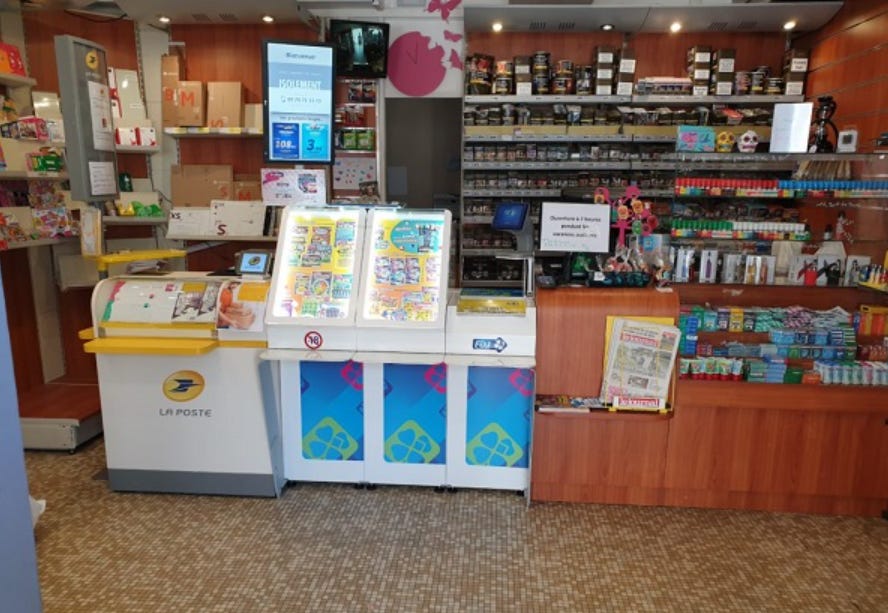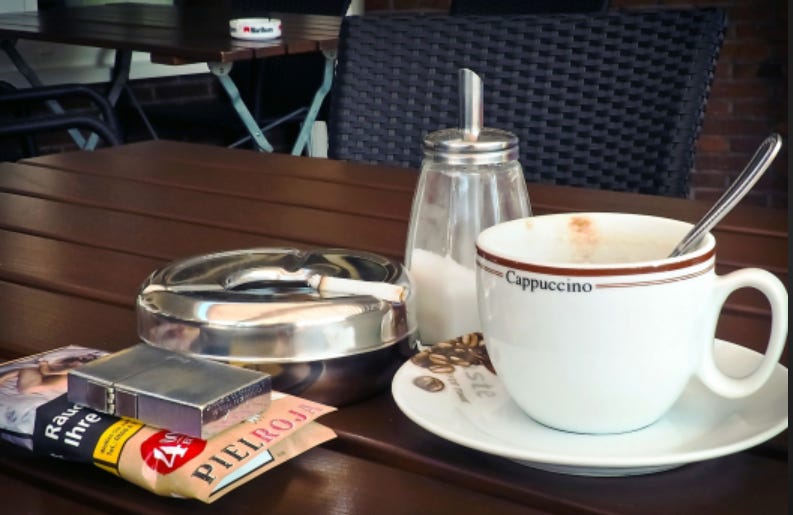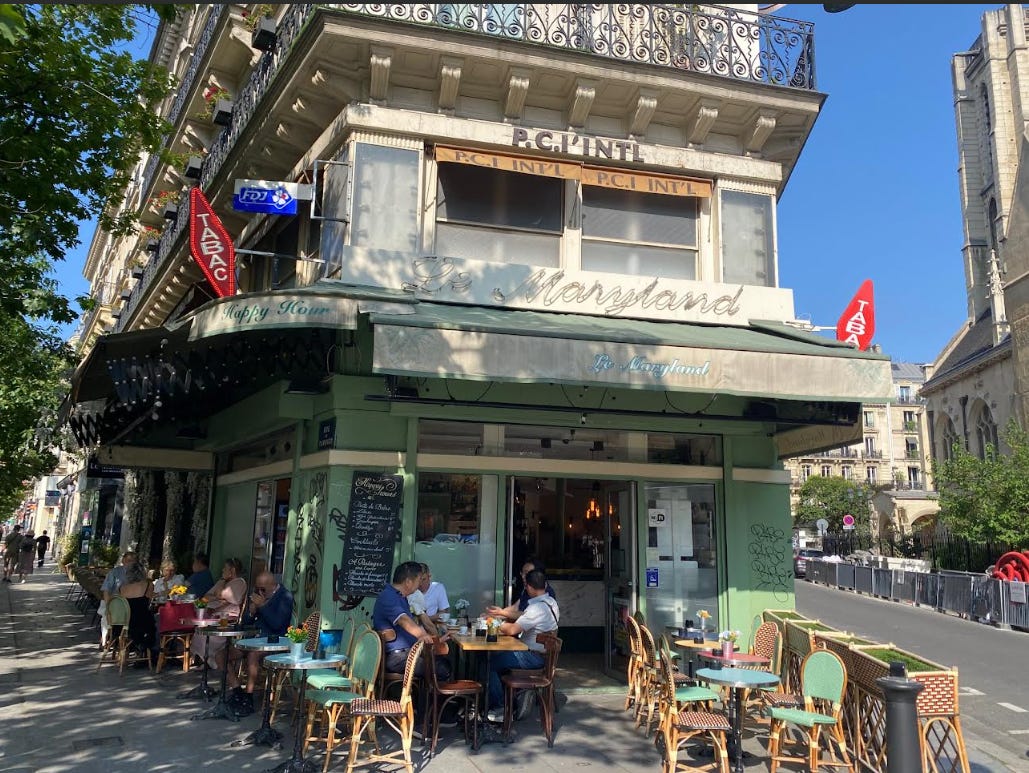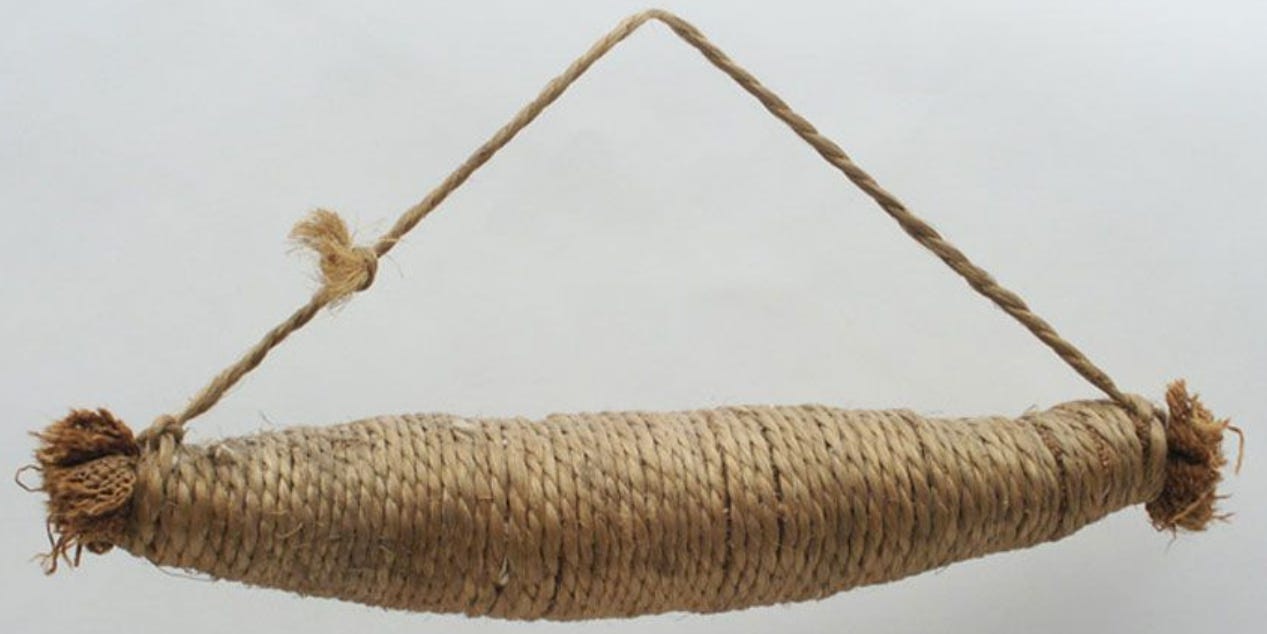Recently, I was talking to my friend Sara here in Paris, and we got on the topic of the tabac in France. A tabac is a one-stop shop for many seemingly unrelated tasks that one may need to accomplish. I can’t compare it to anything I’ve seen in other countries because there’s nothing quite like it.
What is a tabac?
Very simply, a tabac is a tobacco shop (‘tabac’ means tobacco). There are more than 23,000 licensed tabacs around France, from big cities to teeny tiny towns. It’s the kind of place where ‘everyone knows your name’ if you’re a regular. You can hang out and chat with friends — or the owner — about the weather, politics, or life in general. Many a time, I have seen elderly folks hanging out there because it’s a good substitute for a community center.
Smoke ‘em if you got ‘em
Store owners have to jump through hoops to sell tobacco in France. The country has a monopoly over the sale of tobacco, so whatever your pleasure, this is where you can buy your cigars, chewing tobacco, and even vape liquids. (You can also go to supermarkets nowadays.)
However, because of increased anti-smoking campaigns by the French government, fewer people smoke in France today — and that means shops need to diversify their customer offerings. Keep reading.
Try your luck
Who doesn’t enjoy a scratch-off ticket once in a while? Or playing the lottery? I can always use a few extra euros in my pocket. Well, in a tabac, you can buy lottery tickets or scratch-offs, sold at the counter or through machines. Gambling in France is centralized through La Française des Jeux (FDJ), and tabacs are the go-to retail vendors for selling tickets. Some tabacs also offer off-track horse betting.
You can buy all kinds of paper items
In tabacs, you can buy a newspaper (especially if a sign with ‘Presse’ is above the shop), postcards, and small office supplies. They also sell stamps, so you don’t have to run to the post office to send your postcards or letters.
Café tabacs: more than just a shop
More than half of the tabacs in France are a ‘café tabac’, offering drinks and meals. They have tables and chairs for customers to read the newspaper, smoke cigarettes (outside), and enjoy a coffee. The atmosphere can be very congenial and much less formal than even a casual restaurant. On any given day, you may also see les ouvriers — builders or construction workers — enjoying a coffee break at a café tabac in the morning or afternoon.
Patrons can also have a stiffer drink if coffee isn’t enough — a café tabac serves alcohol, too. I’ve often seen people sitting outside a café tabac with a glass of beer or something stronger.
Then it gets really interesting
Unlike any place I’ve ever encountered (I’ve lived in a lot of countries with various bureaucracies), the French tabac is a one-stop shop for some of your administrative needs.
At a tabac, you can:
Pay some of your household bills, like water, gas, or electricity.
Pay local fees to places like state-run daycares and hospitals.
Settle up smaller fines and taxes. There are small taxes in France for getting a French passport or driver’s license, for example, and these can be paid at a tabac, on lottery terminals (how clever is that?).
Add phone credit
I’ve done this many times: I can’t use a foreign bank card to top up my local phone number. So, I simply run into a tabac, give them cash or [foreign] card, and they print a receipt with a code that I use to add credit to my phone. Easy peasy.
Open a simple bank account
It can be very challenging to open a French bank account, so tabacs have started offering simple accounts with a company called Nickel. All you need is a French postal address, ID, and a mobile phone number. If your tax residence is within the EU, you can open one of these accounts.
Finally, a history lesson
France’s history with tobacco dates back to the 16th century, when a French diplomat named Jean Nicot traveled to Portugal, where he first encountered it. He procured some and brought it back to France for Catherine de’ Medicis to give to her son, who suffered from severe headaches. From then it was only sold at pharmacies to treat pain and ingested as an herbal tea.
Once tobacco became ‘a thing’, the church got involved, as it often did in those days. Warnings were issued about the hazards of using tobacco, and at one point, the Pope declared that users would be excommunicated because it was associated with witchcraft.
Let’s fast forward to the time of Louis XIV, when tobacco was declared a state monopoly in 1674. By the late 19th century, tobacco shops were established, and those running them were appointed by the state. (This allowed them to sell tax stamps for people to pay their aforementioned taxes.) Interestingly, preference was given to former soldiers and/or widows or orphans of soldiers and civil servants to open shops.
Even the ‘tabac’ sign, known as a carotte rouge, has history
In 1906, every tabac needed to have the ‘red carrot’ sign over their shop. Turns out, a tobacco carrot is the result of tobacco leaves being stripped, rolled in linen, and bound — resembling a carrot. This goes back to 18th-century North American history. So France made it the emblem of a tabac.
Finally - a song dedicated to tobacco
Smoking is a hard habit to break, and over centuries, some have simply loved it. There was even a little song written about it that dates to the 18th century, called “J’ai du bon tabac” (I have some good tobacco) - click here to listen
Sources:
The Connexion article on the French tabac (in English)
The French Entree (in English)
History of the Tabac (in French)
Introducing Contributor, Jenn Bragg
Immerse yourself in all of Jenn’s articles on her Contributor page.









When I’m in France, my local tabac sells newspapers, magazines and beach toys (it’s near the beach!)
I lived in France for 6 years but still learned some new things from your post, thanks!